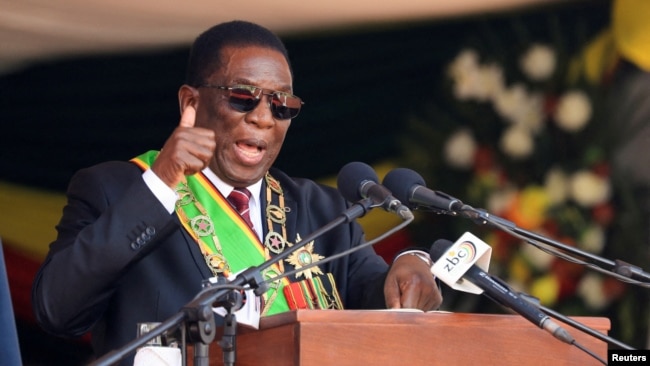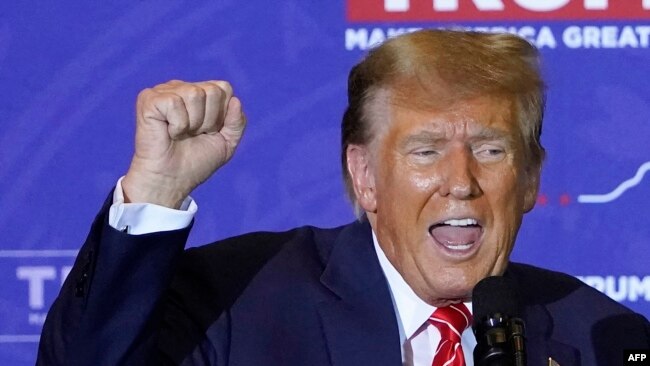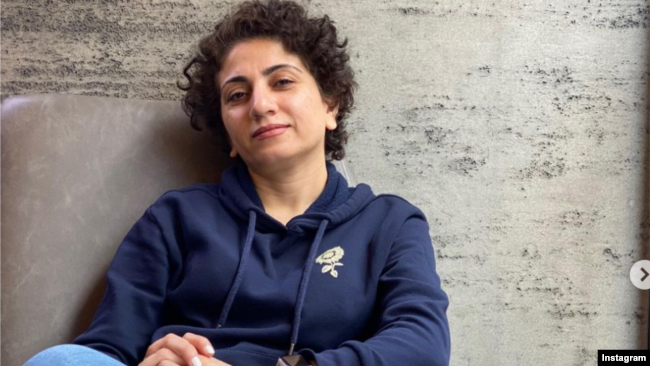WHO는 원숭이 수두 뒤에 있는 돌연변이가 퍼지는지를 조사하는 연구들을 말합니다.
Studies Examining if Mutations Behind Monkeypox Spread, WHO Say
페이지 정보
작성자 Agence France-Presse 작성일 22-08-17 18:05 댓글 0본문

파일 - 한 약사가 8월 캘리포니아 웨스트 할리우드의 팝업 백신 접종 사이트에서 원숭이 수두 백신이 든 주사기를 장착하고 있습니다.
FILE - A pharmacist loads a syringe with monkeypox vaccine at a pop-up vaccination site in West Hollywood, California, Aug. 3, 2022.
제네바입니다.
Geneva —
세계보건기구(WHO)는 수요일 AFP에 원숭이 수두 바이러스의 유전적 변화가 이 질병의 빠른 확산을 주도하고 있는지 알아보기 위한 연구가 진행 중이라고 말했습니다.
Studies are underway to see whether genetic changes in the monkeypox virus are driving the rapid spread of the disease, the World Health Organization told AFP on Wednesday.
바이러스의 두 개의 다른 분류군 또는 변종은 콩고 분지(중앙아프리카)와 서아프리카 분류군이라고 불렸는데, 각각이 고유종인 두 지역의 이름을 따서 붙여졌습니다.
The two distinct clades, or variants, of the virus were called the Congo Basin (Central African) and West African clades, after the two regions where they are each endemic.
WHO는 금요일에 지리적 오명을 피하기 위해 그룹 이름을 각각 Clade I과 Clade II로 변경했습니다.
On Friday, the WHO renamed the groupings as clade I and clade II respectively, to avoid geographic stigmatization.
또한 II 분류군은 IIa와 IIb라는 두 개의 하위 분류군을 가지고 있으며, 후자 내의 바이러스는 현재 세계적인 발병의 배후로 확인되었다고 발표했습니다.
It also announced that clade II had two sub-clades, IIa and IIb, with viruses within the latter identified as being behind the current global outbreak.
수요일, 유엔 보건 기구는 IIa와 IIb가 근래의 공통 조상을 공유하고 있으며, 따라서 IIb는 IIa의 분파가 아니라고 명시했습니다.
On Wednesday, the U.N. health agency specified that clades IIa and IIb are related and share a recent common ancestor, therefore IIb is not an offshoot of IIa.
돌연변이에 대한 연구입니다.
Research into mutations
Clade IIb에는 1970년대와 2017년 이후에 수집된 바이러스가 포함되어 있습니다.
Clade IIb contains viruses collected in the 1970s, and from 2017 onward.
"게놈을 들여다보면, 현재 발병한 바이러스와 오래된 클레이드 IIb 바이러스 사이에 몇 가지 유전적 차이가 있습니다."라고 WHO가 AFP에 말했습니다.
"Looking through the genome, indeed there are a few genetic differences between the viruses from the current outbreak and the older clade IIb viruses," the WHO told AFP.
"하지만, 이러한 유전적 변화의 중요성에 대해서는 알려진 바가 없으며, 이러한 돌연변이가 전염과 질병 심각도에 미치는 영향을 규명하기 위한 연구가 진행 중입니다.
"However, nothing is known about the significance of these genetic changes, and research is ongoing to establish the effects (if any) of these mutations on transmission and disease severity.
"감염의 증가가 바이러스의 관찰된 유전자형 변화에 의해 주도될 수 있는지 아니면 숙주(인간) 요인에 의한 것인지 여부를 밝히는 것은 아직 발병과 실험실 연구 모두에서 초기 단계입니다."
"It is still early on in both the outbreak and laboratory studies to tell if the rise in infections could be driven by the observed genotypic changes in the virus or are due to host (human) factors."
바이러스가 인간의 면역 반응과 어떻게 상호작용하는지에 관한 돌연변이가 무엇을 의미하는지에 대한 정보도 아직 없습니다.
There is also no information yet on what the mutations mean in terms of how the virus interacts with the human immune response.
5월 초부터 아프리카 토착 국가 이외 지역에서 원숭이 수두 감염이 급증한 것으로 보고되었습니다.
A surge in monkeypox infections has been reported since early May outside the endemic African countries.
세계보건기구는 7월 23일 이 상황을 국제 공중보건 비상사태로 선포했습니다.
The WHO declared the situation an international public health emergency on July 23.
92개국에서 35,000명 이상의 사례와 12명의 사망자가 WHO에 보고되었습니다.
More than 35,000 cases in 92 countries, and 12 deaths, have now been reported to the WHO.
거의 모든 새로운 사례가 유럽과 아메리카에서 보고되고 있습니다.
Almost all new cases are being reported from Europe and the Americas.
전문가들은 사례의 샘플을 연구해 왔습니다.
Experts have been studying samples from cases.
WHO는 "현재 발병의 원인이 되는 바이러스들 사이의 다양성은 미미하며, 비종양 국가들에서 온 바이러스들 사이에 명백한 유전자형 차이는 없다"고 말했습니다.
"The diversity between the viruses responsible for the current outbreak is minimal, and there is no obvious genotypic differences between the viruses from the non-endemic countries," the WHO said.
원숭이 수두의 이름을 바꾸는 데는 몇 달이 걸릴 수 있습니다.
Renaming monkeypox could take months
한편, WHO는 원숭이 수두의 이름을 바꾸려는 노력이 "수개월이 걸릴 수 있다"고 말했습니다.
Meanwhile the WHO said its drive to rename monkeypox could take "a number of months."
그 단체는 몇 주 동안 그 이름에 대해 우려를 표했고, 전문가들은 그것이 오해를 불러일으킬 수 있다고 우려했습니다.
The organization has for weeks voiced concern about the name, with experts concerned that it is misleading.
1958년 덴마크에서 연구를 위해 사육된 원숭이에서 바이러스가 처음 확인되었기 때문에 원숭이 수두가 그 이름을 얻었습니다.
Monkeypox received its name because the virus was originally identified in monkeys kept for research in Denmark in 1958.
하지만, 이 질병은 설치류에서 가장 자주 발견되며, 현재 발병은 인간과 인간의 긴밀한 접촉을 통해 퍼지고 있습니다.
However, the disease is found most frequently in rodents, and the current outbreak is being spread through human-to-human close contact.
세계보건기구는 누구나 제안을 할 수 있는 전용 웹사이트와 함께 새로운 이름을 고안하는 데 대중의 도움을 요청했습니다.
The WHO has called for help from the public in coming up with a new name, with a dedicated website where anyone can make suggestions.
"우리는 올해 말까지 대중에게 최신 정보를 제공할 것입니다,"라고 WHO는 말했습니다.
"We will update the public by the end of the year," the WHO said.
출처 : VOANews
댓글목록 0
등록된 댓글이 없습니다.

















